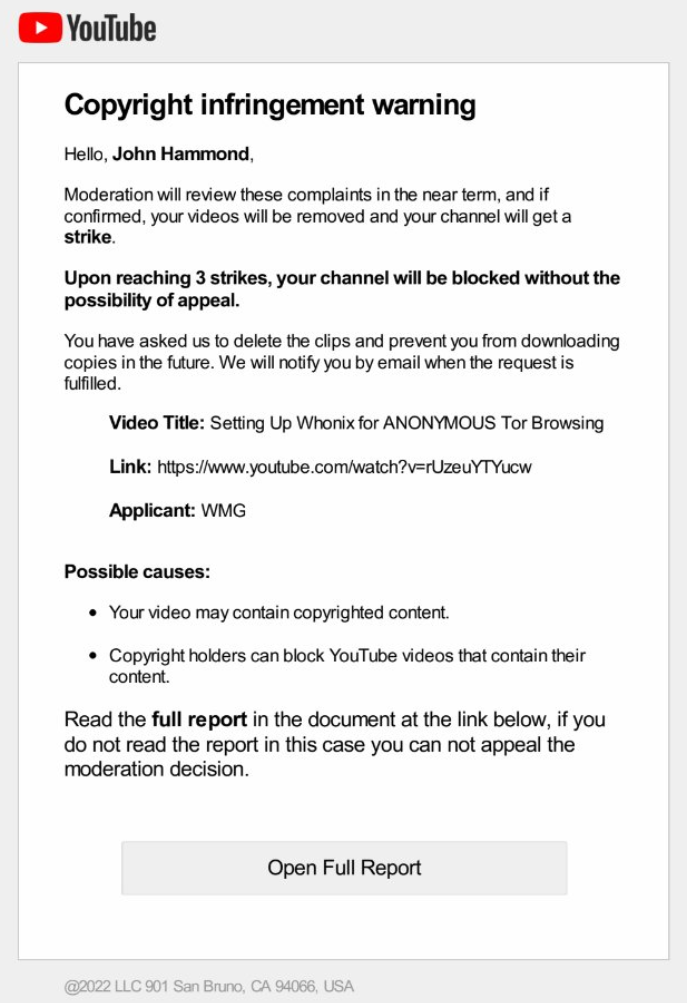- Jul 27, 2015
- 5,459
To make their victims more compliant, online scammers often imply that something of value is under threat if immediate action isn't taken. Bank accounts are often mentioned but nothing is off limits. A scam currently doing the rounds warns of copyright strikes on genuine YouTube accounts, but after targeting a security researcher, the scam's secrets are now public.
The popularity of user-generated content sites like YouTube has led to millions of regular people becoming proud content creators in their own right. Since YouTube content creators are also copyright holders, this can lead to a new perspective on the purpose of copyright law. To keep things running smoothly, content creators also need to respect any copyrights held by others. Not doing so could lead to copyright complaints from third parties. If YouTube users receive three complaints, their accounts could be permanently suspended, taking all videos, views, subscribers, even creative momentum away. Fortunately, most careful YouTubers never experience copyright problems. But out of nowhere, disaster can still strike.
The message above was received by YouTuber John Hammond just this week. In common with similar emails received by other YouTubers recently, it mentions a genuine video he created and uploaded to YouTube. It even cites the correct YouTube URL. But Hammond is not just a YouTuber, he’s also a cybersecurity researcher, and this didn’t feel right.
By including genuine information in the message and coupling that with the genuine fear of account loss, the scammers hoped that panic would lead to urgency, and that urgency would lead to less scrutiny. Hammond didn’t panic, he knew his video didn’t violate copyright.
The message was sent to Hammond via Google Drive, in PDF format. YouTube would never do that. Warnings appear in users’ YouTube accounts so viewing them there is always the best option – unless you’re a cybersecurity guy with a penchant for rabbit holes. Hammond followed up by doing what the message asked. He clicked the ‘Open Full Report’ button for more information and found himself transported to an obviously-not-YouTube URL, with his email address tagged on the end. This is rarely a good thing.
Fake 'YouTube' DMCA Notices Exploit Suspension Fears to Install Malware * TorrentFreak
A scam playing on users' fears of copyright strikes on their genuine YouTube channels has been exposed after targeting a security researcher.
